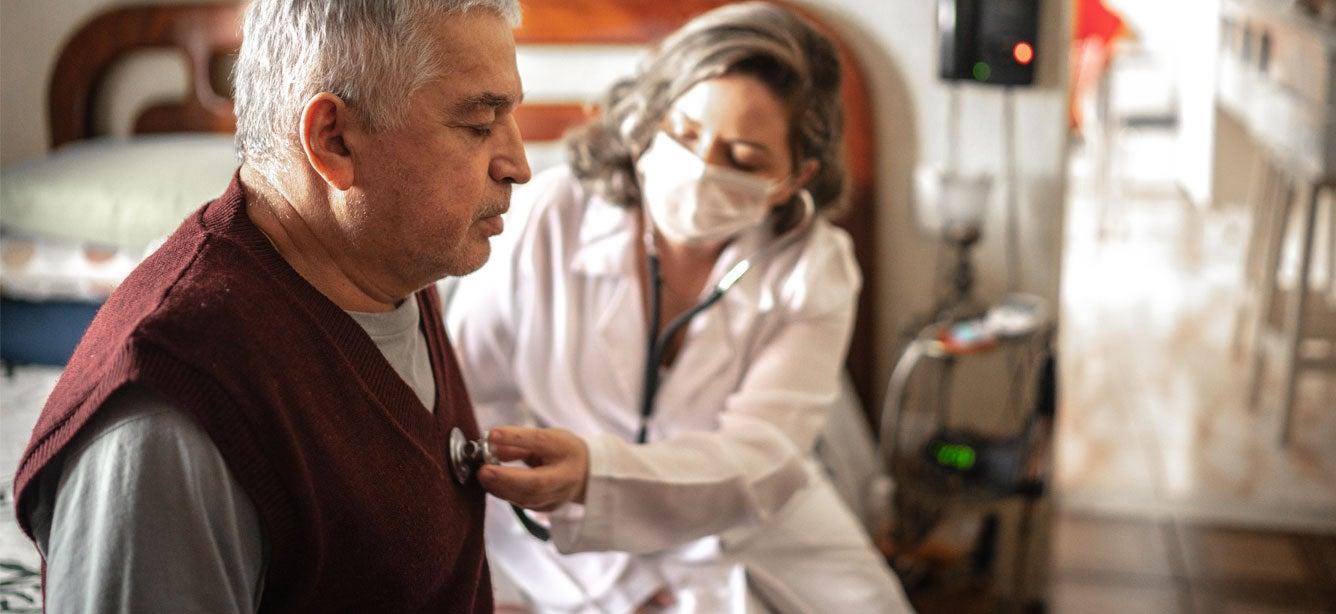
Related Topics
When people steal from Medicare, it hurts us all and is big business for criminals.
Medicare loses an estimated $60 billion each year due to fraud, errors, and abuse.1 Every day, issues related to these problems affect people across the country, often costing them money, time, and their well-being.
It can directly affect Medicare beneficiaries’ access to medically needed, or lifesaving services and benefits.” – Nicole Liebau, SMP Center Director Advisor
Medicare-related errors also contribute to this annual loss even though errors can be honest health care billing mistakes. However, a pattern of errors by a physician or provider could be considered a red flag of potential fraud or abuse if not corrected.
Some common examples of Medicare fraud or abuse:
- Charging for services or supplies that were not provided
- Misrepresenting a diagnosis, a person’s identity, the service provided, or other facts to justify payment
- Prescribing or providing excessive or unnecessary tests and services
- Offering or receiving a kickback (bribe) in exchange for a beneficiary's Medicare number
How can we prevent Medicare fraud?
The most effective way to stop fraud from occurring is to prevent it in the first place. Educating yourself and your loved ones on how to prevent Medicare fraud, errors, and abuse is the best place to start.
Everyone plays a part in the fight against fraud. A few actions that can be taken:
- Medicare beneficiaries can monitor their insurance statements to make sure products and services received match what is on the statements. They can request free My Health Care Trackers from their local SMP.
- Caregivers can help by being on the lookout for items such as durable medical equipment (like boxes of knee braces) lying around the house that may have been shipped to the beneficiary without their or their doctor’s approval. They can remind their client or loved one to never give out their Medicare number or other personal information over the phone.
- Families can help by talking to their loved ones about protecting their Medicare number just as they would a credit card number. They can help their loved ones create a Medicare.gov account to access their Medicare statements online or remind them to open and review them when they come in the mail. They can also register their phone number on “do not call” lists and go to optoutprescreen.com to opt out of mailings.
- Partners and professionals can help by sharing SMP information on social media, referring clients and consumers to SMP, and inviting SMP to speak during a shared event.
- Health care providers can help by talking to patients about health care-related scams such as those related to durable medical equipment and genetic testing schemes. They can remind patients that products and services should only be ordered by physicians they regularly see. Needed medical items should never be ordered through TV ads or unsolicited calls.
- Community members can help by looking out for older neighbors. When in public, they can be aware of older individuals purchasing gift cards in large amounts. They can encourage those they know to talk to a trusted source about their Medicare questions and tell neighbors about the most recent Medicare scams. They can even consider volunteering with the local SMP!
- Everyone can participate in Medicare Fraud Prevention Week each June!
The Centers for Medicare & Medicaid Services (CMS) also has a Reporting Medicare Fraud & Abuse webpage with helpful fraud prevention tips and examples of the most common types of Medicare fraud and abuse.
SMP is a national program that educates Medicare beneficiaries about Medicare fraud, errors, and abuse. Learn more about the SMP program at www.smpresource.org.
Sources
1. MEDICARE PROGRAM: Additional Actions Needed to Improve Eligiibility Verification of Providers and Suppliers. Government Accounting Office. 2015. Found on the internet at https://www.gao.gov/assets/gao-15-448.pdf



